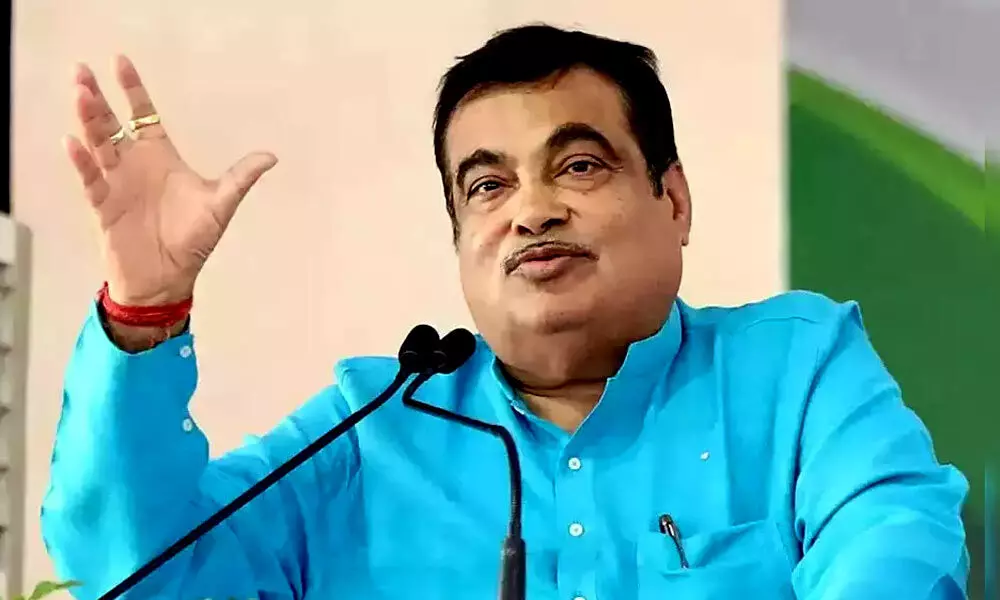
Nitin Gadkari unveils bold vision for India’s transport future with Hyperloops, E-Buses and Ropeways
RANCHI : Union Minister of Road Transport and Highways Shri Nitin Gadkari has unveiled an ambitious roadmap for next-generation mass mobility in the country, which includes electric rapid transport, hyperloop in urban areas and ropeways, cable buses and funicular railways in inaccessible terrains.
In an interview with PTI, the Union Minister said India’s transport sector is undergoing a major transition, with initiatives like tree bank, mobile-based driving tests, and flex-fuel engines by 11 leading automakers in the pipeline.
Also on the agenda are plans to upgrade 25,000 km of two-lane highways to four lanes, establish an electric mass rapid transport network across major routes and scale up road construction to 100 km per day.
“A mobility revolution is underway,” Gadkari declared. “We’re not only focusing on big cities but also bringing advanced transport to rural and hilly regions. Ropeways, cable cars, and funicular railways are being developed at 360 sites, work is already underway in 60 of them, including Kedarnath.”
Funicular railways, which blend the functionality of elevators and trains to tackle steep inclines, are seen as a game changer for mountainous areas. Project costs are estimated between ₹200 crore and ₹5,000 crore, with the minister confident these innovations will redefine travel in India.
Rapid highway expansion and green mobility
Gadkari reaffirmed his goal of building 100 km of roads per day and said plans are in motion to upgrade 25,000 km of two-lane highways into four-lane roads. The national highway network, he noted, has grown from 91,287 km in 2013-14 to over 1.46 lakh km today, marking a 60% increase. National High-Speed Corridors (HSCs) have expanded dramatically, from just 93 km in 2014 to 2,474 km now.
A key focus is also reducing the logistics cost, which currently stands at 14% of GDP, to 9% by the end of the year, thereby boosting trade and industrial competitiveness.
Flex-fuel push and electric transit
The minister revealed that 11 major automakers, including Tata, Mahindra, Hyundai, and Toyota, have agreed to manufacture flex-fuel engine vehicles, which can run on ethanol, methanol, or blended biofuels in addition to petrol or diesel. This move aims to slash India’s Rs 22 lakh crore annual fuel import bill and reduce dependence on fossil fuels.
In Nagpur, a pilot for a 135-seater electric bus is set to launch. Designed for executive comfort, the bus will feature airline-style amenities and operate at speeds of up to 125 km/h, with fast-charging capabilities at designated stops. Once proven successful, the buses will be deployed on key intercity routes such as Delhi-Chandigarh, Mumbai-Pune, and Bengaluru-Chennai.
Next-gen urban mobility and infrastructure
Urban centres like Delhi and Bengaluru are being considered for futuristic pilot projects such as hyperloop transport, pillar-based mass rapid systems, and Metrino pod taxis. “Technology and capital are both flowing in,” Gadkari said. “We are preparing India for a transport revolution.”
Sustainability and road safety
To address environmental concerns, Gadkari said roadside tree planting initiatives are in full swing, with plans to plant up to 25 crore trees along highways. The Ministry of Environment is working on establishing a ‘tree bank’ to facilitate transplanting mature trees and replacing each felled tree with five new ones.
In terms of road safety, the government is deploying precast road materials, drone surveillance, AI-driven monitoring systems, and robust three-foot road barriers. A total of 670 roadside amenities are also being developed to provide quality rest and service areas for travelers.
Gadkari stressed that cleaner, faster, and safer transportation will not only make travel more efficient but also generate employment, lower emissions, and attract significant investment. “In the coming year,” he said, “Indian highways will be at par with US roads in terms of quality. We are building the future, one kilometre at a time.”
Source : PTI

